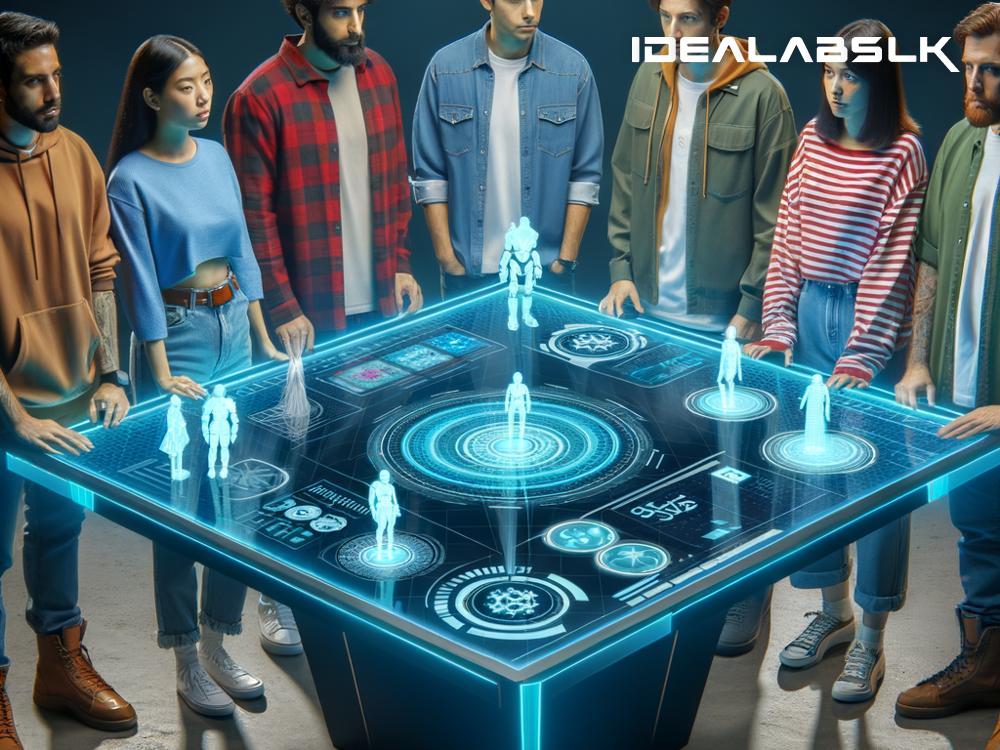How AI Will Shape the Future of Role-Playing Games in 2025
The world of gaming, especially role-playing games (RPGs), is on the brink of a revolution, all thanks to artificial intelligence (AI). Imagine stepping into a game where the characters you meet aren't just programmed with a set number of responses. Instead, they learn and adapt from every interaction with players. Imagine a game that evolves based on your decisions, creating a storyline that's as unique as your fingerprints. This might sound like science fiction, but with the rapid advancements in AI technology, by 2025, this could very well be the reality for RPGs.
A New Level of Personalization
One of the most exciting prospects AI brings to role-playing games is unprecedented levels of personalization. Gone will be the days when every player experiences the same storyline, faces identical challenges, and meets characters with pre-determined destinies. Instead, AI can tailor quests, dialogue, and game environments specifically to your preferences and playing style.
For example, if you love solving puzzles, the game might present more intricate mysteries for you to unravel. If you're someone who enjoys dialogue and character development, NPCs (Non-Player Characters) might become more engaging and dynamic, sharing stories or engaging in debates based on topics you've shown interest in earlier in the game. This level of personalization not only enhances the gameplay experience but also significantly increases replay value.
Adaptive and Evolving Storylines
Currently, most role-playing games follow a linear storyline or offer a handful of branching paths. However, with AI, the narrative could become as fluid and unpredictable as real life. Imagine making a decision early in the game that causes a butterfly effect, completely changing the world's political landscape by the end of your journey. Or, consider forming a relationship with a character that, based on your interactions, could evolve into a powerful ally or a formidable enemy.
AI-driven RPGs could analyze your decisions and dynamically alter the game world and its inhabitants, creating a deeply immersive and personal experience. Every playthrough could result in a completely different ending, not just variations of a pre-determined finale.
Enhanced NPC Interactions
Non-Player Characters are crucial to the richness of role-playing games. With AI, NPCs could become sentient beings within the game world, possessing their personalities, memories, and ambitions. Instead of being confined to scripted responses, they could react organically to your actions and words, remember past interactions, and form opinions about your character.
This advancement would significantly impact quest dynamics. For instance, convincing a key NPC to trust you could depend on your past actions within the game or how well you can appeal to their personality and motivations. Such complexity would add a new layer of strategy and depth to RPGs.
Real-Time World Evolution
Currently, changes within game worlds typically occur as a result of player actions at specific points. However, AI could enable the game world to evolve in real time, independently of the player's actions. The economy, politics, and social dynamics of the game world could shift based on hundreds of unseen variables, making each player's experience genuinely unique.
If, in your absence, a war breaks out between two factions you've interacted with, whose side will you take? Or, if a plague decimates a town you were fond of, how will you help? These dynamic events, driven by AI, would make the game world feel alive and add an unprecedented level of immersion.
The Challenges Ahead
While the possibilities are exciting, integrating AI into RPGs is not without challenges. Creating such complex AI systems requires significant resources and technological advancements. Furthermore, ensuring these AI-driven experiences are enjoyable and engaging for a wide range of players will be a monumental task for game developers.
Additionally, ethical considerations surrounding AI development and the potential impact on jobs within the gaming industry cannot be overlooked. Balancing innovation with responsibility will be crucial as we move forward.
Conclusion
As we look towards 2025, the future of role-playing games seems boundless. AI promises to revolutionize how we play, experience, and relate to video games. From personalization and dynamic storylines to sentient NPCs and living game worlds, RPGs are poised to offer experiences that are more immersive and emotionally engaging than ever before.
The road ahead may be fraught with challenges, but the potential for creating worlds where our choices truly matter offers a glimpse into a future where gaming becomes a deeply personal adventure. The age of AI-driven role-playing games is just on the horizon, and it promises to be an exciting journey.

